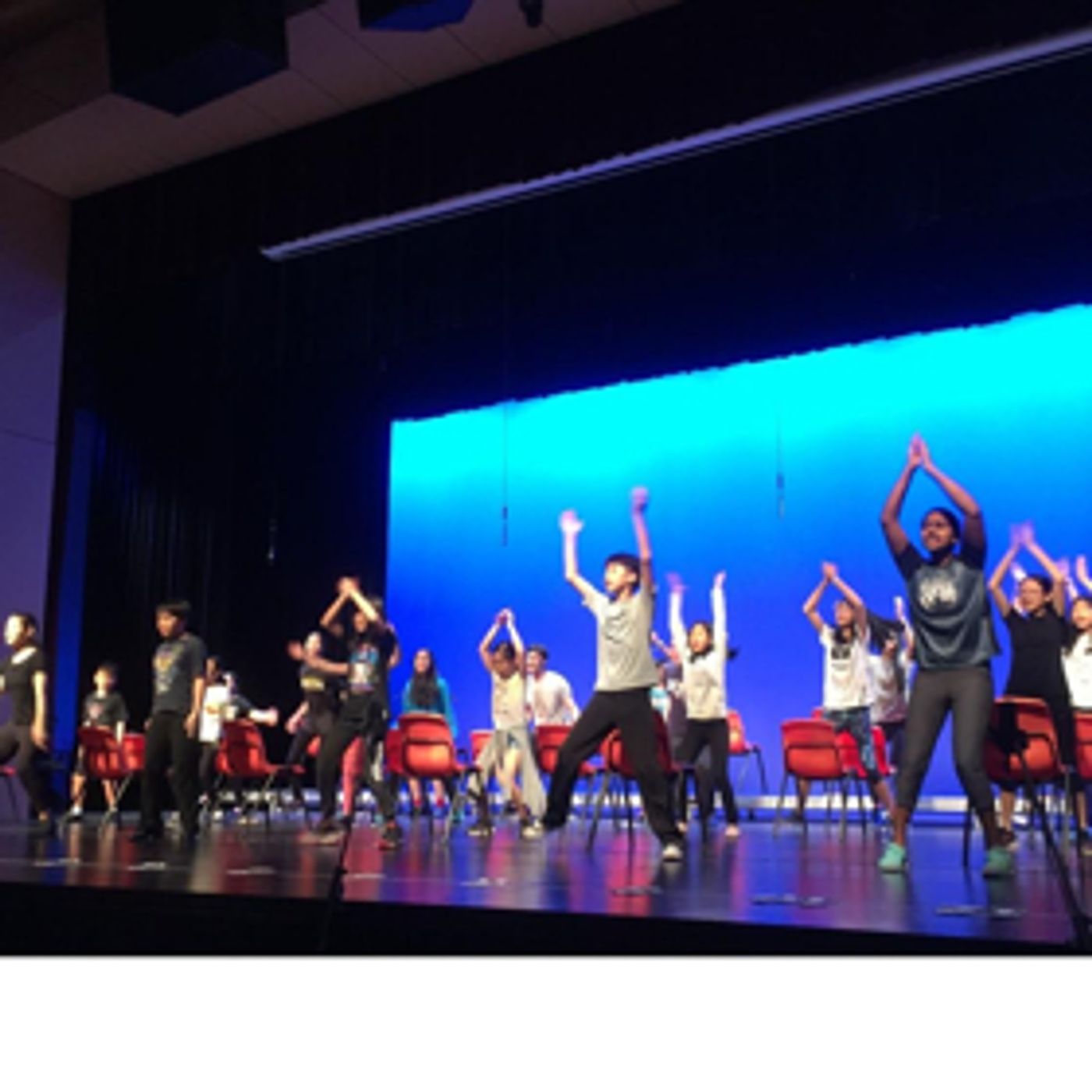Guest Blog: Passport to Broadway in China - Day #4

One day to go! We've been practicing our show song by song, breaking it down into pieces and fine-tuning each section. Muscle memory is kicking in, and the students are starting to sing and dance more like an ensemble. They have a greater understanding of the purpose of each song in the story they're telling, and they're improving at remembering the sequence of events. We ended day six with two run-throughs, the second much smoother than the first.
The great mathematician, comedian, and songwriter Tom Lehrer said, "Life is like a sewer: What you get out of it depends on what you put into it."
The same can be said of our rehearsals. It's perfectly fine for someone to stand there, sing the part, and do the moves by rote, and that person will have the satisfaction of having learned how to become more anatomically dextrous and copy a teacher. But, as little Alice put it, "If we dance without any expression on our faces, we will look like a zombie or a donkey." Those without expression will not be placed front and center onstage, and worse, they won't grow as actors. To improve in the performing arts one must take chances, putting oneself on the line and not being afraid to err or look foolish.
Tom Lehrer also remarked, "The important thing is to understand what you're doing, rather than to get the right answer." He said that sarcastically of a 1960s math teaching philosophy, but it applies truthfully to the Broadway world. Nobody in the audience cares-or is likely to even know-if someone on the stage makes a mistake. But watchers will know if someone is afraid, not trying, or not in character.
Many of our cast members are still struggling, but slowly improving, at staying in the moment and not worrying about getting everything right. And, of course, as teachers we have to come to terms with the apparent contradiction of asking them to practice the correct syllables, notes, and dance steps and then telling them it's acceptable to fake it. Ultimately, it's nice to have both accuracy and expression. But if you have to pick one, expression is more important for a convincing performance (and, in theory, the easier one to attain).
Tomorrow is the big show, in a theatre near the students' school. To prepare them, we've started throwing in new elements of the performance: basic costume pieces, props, and a dark stage for the overture and entr'acte. We've had them practice without dance mirrors, and we've used mobile-phone flashlights to simulate the bright stage lights and add a sense of theatricality. They have adjusted to all of that easily.
In the morning the kids will check out of the hotel and ride a bus an hour to the southern part of the city. The parents will see all they've achieved in six days. If the students are nervous about that, they don't show it. Regardless, they have much to be proud of.
Love Theater in China? Join The Community!
Whether you've got past experience writing about theater or just starting, the BroadwayWorld Community offers a unique opportunity to become a champion for your local arts community, helping raise awareness of local offerings and adding another local voice to the conversation at a time arts coverage is shrinking in the press across the continent. Join us and become a pivotal part of the movement that celebrates and promotes the arts in the digital age.
Learn MoreVideos

